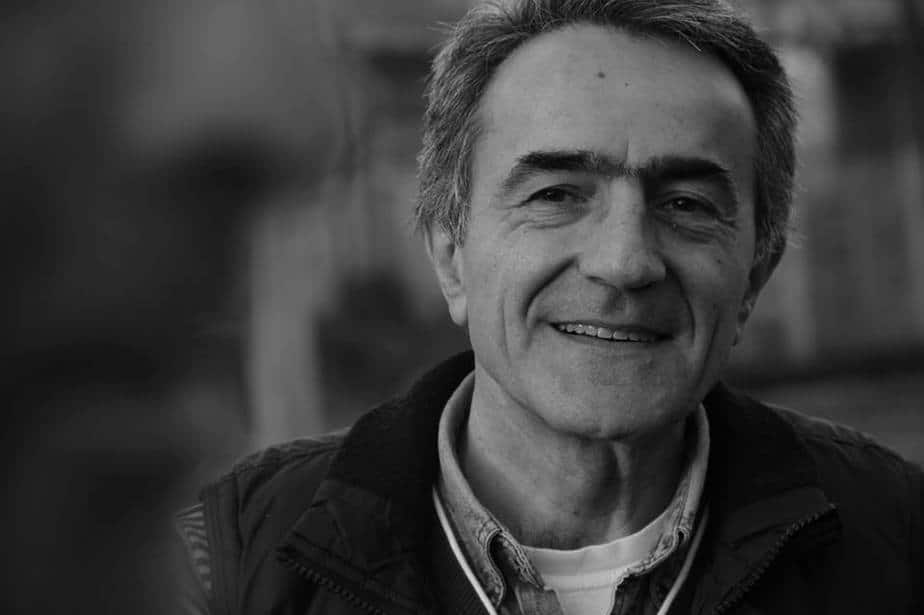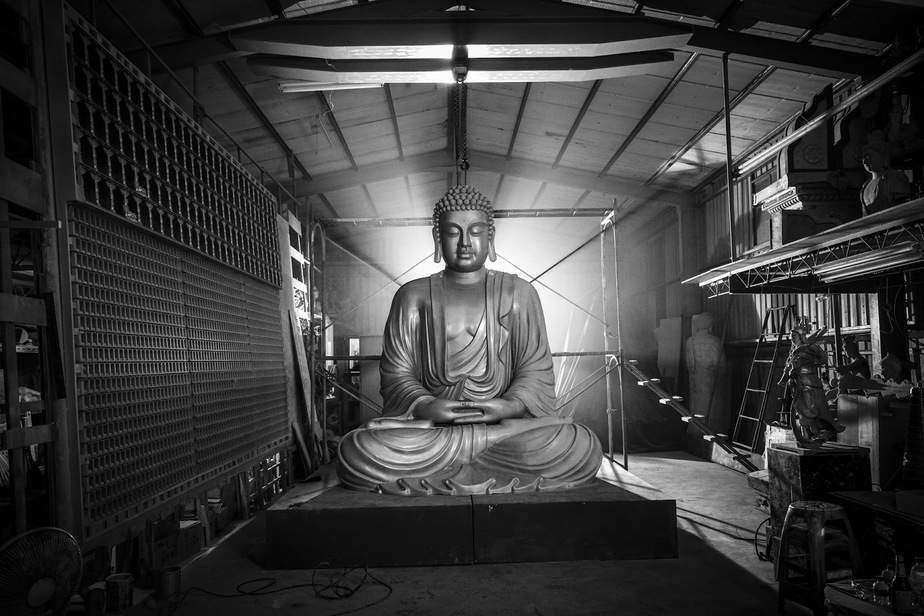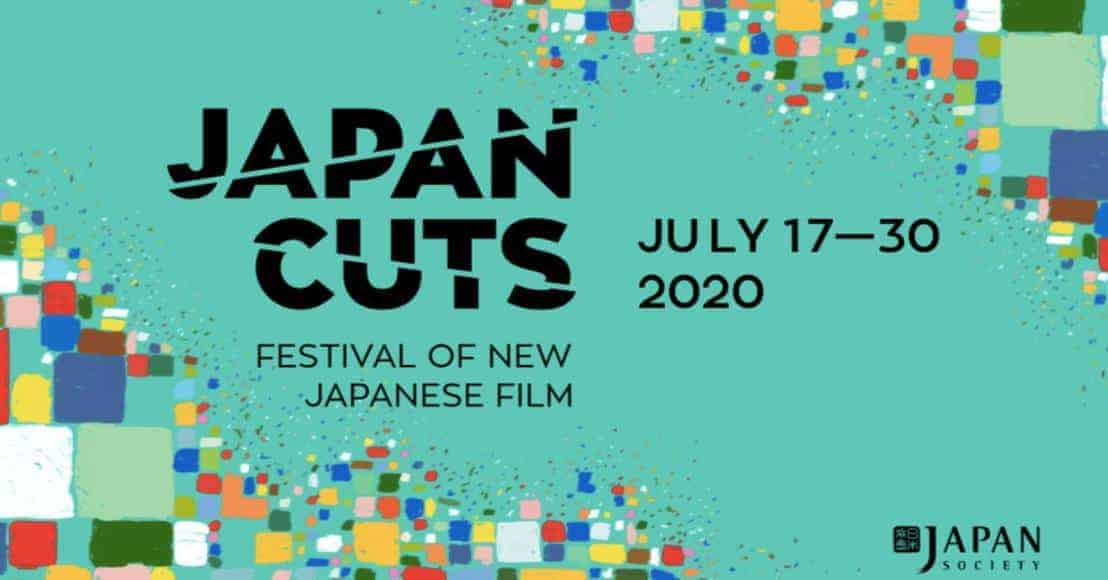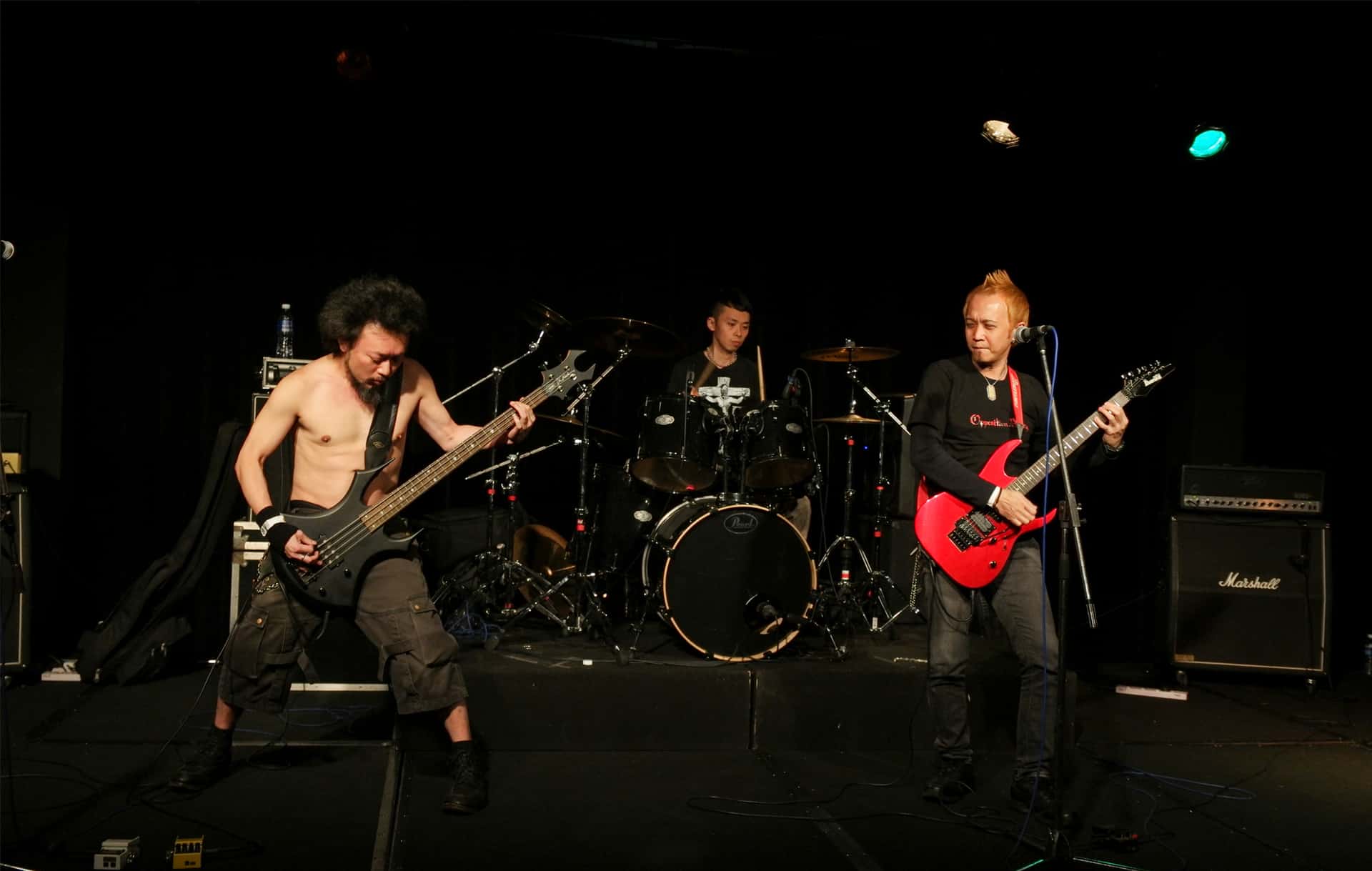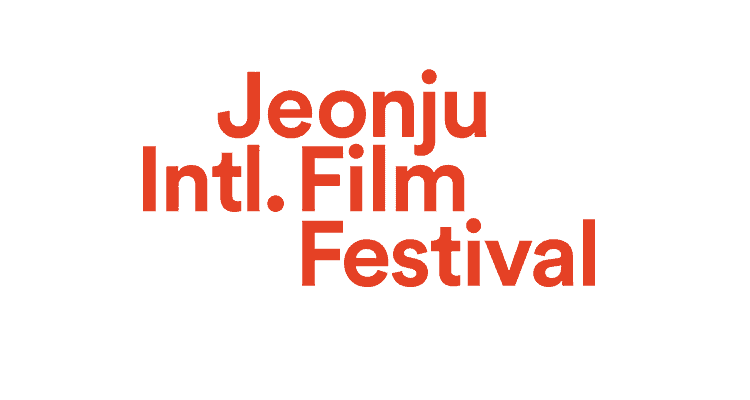Zaza Khalvasi was born in Batumi, Georgia (formerly USSR) in 1957. In 1979, he graduated from Tbilisi State University faculty of philology, then completed a course at Tbilisi Rustaveli Institute of Literature. In 1982 graduated from Tbilisi State Institute faculty of film directing, studied under two prominent Georgian directors' supervision – Tengiz Abuladze and Rezo Chkheidze. In 1977-2004 he was employed by the Film Studio Georgian Film, where he directed “There Where I Live” and “Mizerere”. His film “Namme” premiered at Tokyo IFF. Currently he divides time between his art and teaching at Batumi State Art University.
On the occasion of “Namme” screening at Aperture: Asia & Pacific Film Festival, we speak with him about the environment, water, tradition, slow cinema and many other topics

Ali, the town's water healer, says at one point in the film how important it is to be “in sync” with the environment. How did you manage to translate that statement into the movie because the film looks incredibly beautiful?
Harmony with nature, as it is widely accepted, represents a significant factor for the continuation of life. However, this very harmony is being destructed under the influence of contemporary technical progress. If we put it more mildly, it undergoes transformation. Hence, a human being too is undergoing transformation, not only in biological and physiological terms, but also in terms of spirituality and ethical values. Film, being one of the disciples of poetry, represents a sort of reflection of these processes. Ali stands as a symbol of “old times”, who can not even imagine living without harmony with nature. At some moment he says, that we are only the guardians of what has been passed onto us from the past. Ali can not imagine life otherwise and his own realisation in any other way. A “nice shot” in my film is in fact an end in itself, as it underlines what we are loosing.
“Namme” was shot in the highlands of Adjara with a cast largely consisting of non-professional actors. How important were these conditions to the film?
This is a matter of viewpoint, rather than an instrument designed for one specific film. For me credibility is central on the screen, the feeling of reality, where an actor represents an artificial insertion, with all of his resources for acting and understanding of the role. Amateur is more instinctive, he does not play the role, he lives on the screen rather than adopting the role. Therefore, it seems to me that real people render adequate emotional atmosphere of a given situation only under real circumstances, where a metaphor is born not by mind, which is to say artificially, but rather by means of sensation. Under such circumstances, a man represents himself and he is not brought to life by imagining. This kind of character is close to me, he is humane, I understand him…
As regards to highland Adjara, it's my homeland, where I was born, raised and learned to think. It's my “realism”, which I know, love and which hurts me. I believe I am interesting for others from “here”.
Despite being labeled “slow cinema” may sequences in “Namme” feel very improvised, natural even, which would fit to the overall theme of synchronicity of the film. In general, how would your characterize your approach to the actual filming?
The shooting process almost feels like a religious ritual to me, when supernatural and material merge into one in such a way, that you loose personal senses and get completely carried away by telling the reality, which disturbs and leaves you restless. Today, due to technological changes, film has transformed from being industrial into being the art at the disposal of subjective creators, much like the process of creating a poem or prose by a writer. A writer is alone with his thoughts, so is a director at a shooting location. Thanks to digital technologies, crew noise and fuss is minimised, which is ideal for meditation. Therefore, it's essential to what extent a director feels alone, which is to say concentrated on personal capacity for perception. The more lonely a creator is, the more trustworthy is his creation.
Since the majority of the film's scenes are set outdoors, did you have to adapt to the weather or the environment?
I want to tell you one story. We were filming this material on 2000 masl. At some moment we were praying for fog, we needed it so much, we ordered pyrotechnics specialists from Tbilisi. However the shooting scene was so spacious, it turned out impossible to cover it with artificial fog. When we started to shoot the scene with Namme walking on the water, suddenly the sky got cloudy and a mass of thick fog descended from the mountaintops straight onto the lake. We of course rushed to take advantage and luckily managed to shoot the scene exactly according to the plan, thanks to the heavenly help. We received this help further – we needed snow, it would snow the night before, we needed rain, it would rain. You could think that the nature was tuning into my plans, not vice versa. We declined to take extra efforts, followed this mystical logic and everything went as smoothly as I wished in my dreams. This situation, eventually led me to believe that that the film would work, because unknown and unseen forces were on our side.

“Namme” is also about a period of transition. The sound of water reflects the change from the old, patriarchal order to something new. Is that something unique for Georgian society or is that a general observation of yours?
The sound of water is perceived as a prayer, which endlessly flows from the past and tells us those forgotten stories which got stuck in our unconscious memories. This has been like it for ever, men always chose their dwelling near water. This preference is the mark and reflection of those times, when we, humans lived in total harmony with nature. However, with the increasing human demands, this harmony has gradually disappeared and this is true all around the world. Transformation and change does not always imply good. Abrupt rejection of the past in favour of material objectives, more often leads to more damage, and this damage is higher than the good produced by technological progress. All of us carry this nostalgia. We all long for return to our childhoods… and this wish does not have age or nationality.
Your film also seems to warn of the dangers of this transition, for example in the symbolic shot of the water changing color in the opening shot of the film.
It is a warning as much as it is a reflection of regret.
There is a shot between Namme and the young man she is able to heal on a wooden gate which reminded me of a similar shot in Andrei Tarkovsky's “Mirror”. Other scenes, especially with Namme and her father, are reminiscent of the works of Bela Tarr. What are your influences as a filmmaker and a writer?
I was born in the Soviet empire. At that time, there was no such thing as freedom of speech. There came a generation of Georgian filmmakers in the 60's who showed the truth by means of fable, these were Tengiz Abuladze, Otar Ioseliani, Eldar Shengelaia and in Russia – Tarkovsky. It was exactly these artists who influenced the formation of my creative taste. Bela Tarr is the master of “slow film”. However I came across his art later, when I had already outlined my own priorities. And if there is any resemblance, only as much as there can be between “Madame Bovary” and “Anna Karenina”, which were created independently from each other, however were based on the same artistic premises. Ideas which are characteristic for a given period somehow tend to circulate in the air and are passed around…
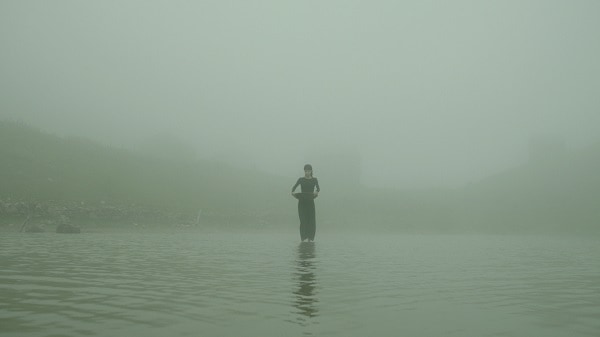
Another similarity your film shares with the aforementioned works is the strong emphasis on spirituality and time. How important are these themes within your work?
I believe the artistic way of thinking represents one of the modes of scientific study of the world. Every next film is the next step in formulating one's own consciousness. I am a specialist of literature by education, but I am film director by profession. This condition naturally influences my way of selecting subjects and of telling stories. Besides, I come from a small country with a long history. Film, on the other hand, has a unique capacity for penetrating into such intellectual realm, where cultures of small nations take a long time before they manage to represent themselves and get established. Film overcomes this quicker and effectively. Therefore, I believe that film represents a spiritual envoy of the nation, which reflects this nation's current philosophy by means of visual language. This mission is an important inspiration for me.
So far, the reception of “Namme” seem to have been very positive. What are your experiences with audiences? How did they react to the film?
The ultimate experience which I gained from the viewers of “Namme”, was the realisation of the fact that humans are hungry for meditational perception of the philosophy of life, for thinking about spirituality and the passing of time, and that viewers go to the movies not only for entertainment, especially the young people, who are offered lots of temptations by the modern “artistic industry”.
Are you working on any new projects?
A modest success of “Namme” and the evaluations of this film as an aesthetic system has brought about a new motivation, has brought forward new questions for me: – what is a human self-esteem during the period of the change of self-identification, when a new reality demands the revision of already established personal principles and norms, if one wishes to continue living… to be short, telling and building of “new constructs” remains the sole activity of my existence!


